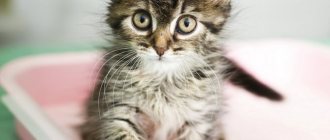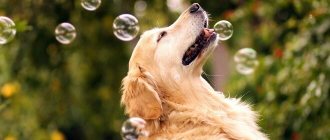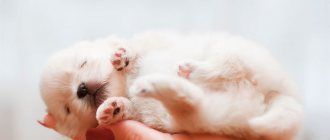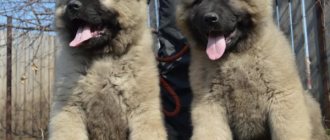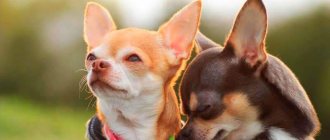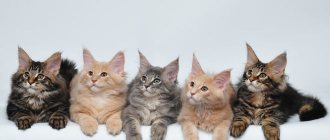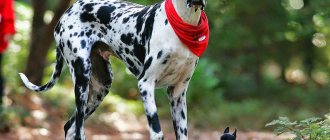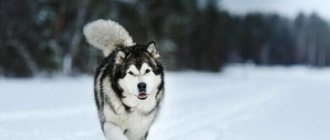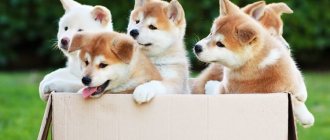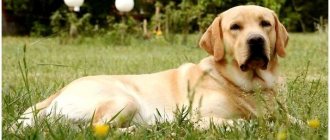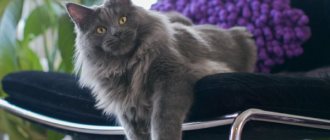Maine Coon Size Standards
Upon reaching 15 months, the growth of the coon is completed and until the age of three they gain only muscle mass.
The weight of a male at one and a half years old can reach 8-10 kilograms. Girls are more modest in size - about 8 kilograms. Before reaching the age of one year, there are some females that can be similar in size to the males. The weight of a coon may change after spaying and neutering (for cats). This is caused by hormonal imbalance. For such cats, you need to select special food and monitor physical activity. You can often find information that coons have enormous height and weight exceeding 25 kg. This is a very persistent myth that is simply a myth and a fallacy. If a Maine Coon cat exceeds 12 kg, this may indicate problems with the health of the animal.
There are official records for the size of coons that were exhibited at exhibitions and competitions. The largest cat had a body weight of 15 kilograms. The physique of this breed is muscular and has a large head. They have characteristic tassels on their ears and a long fluffy tail.
What is the weight of an adult cat and Maine Coon cat?
The size and weight of a kun depends on many factors. The state of an adult cat is established at birth. The size of the animal is affected by:
- Genetics. If the kitten's parents were large and in good health, there is a high probability that the kittens will also be of impressive size.
- Floor. Males are larger and taller than females. Males also grow faster than their female counterparts.
- The use of hormonal drugs in a cat during certain periods.
- Conditions in which kittens grow up.
- Stress factor. If an animal is constantly exposed to stress, the endocrine system of the animal suffers first, which negatively affects further growth.
- Proper nutrition. It must be balanced. By following proper nutrition, healthy and strong coons will grow up with the correct size and weight.
Typically, a cat stops growing and gaining weight at the age of three. During this period it should reach its maximum size. For a male, the weight can range from 9-12 kg, castrated individuals can weigh 13-16 kg. All cats should be between 7-10 kg. The height at the withers can reach 25-40 cm. The length of the body from the nose to the tip of the tail can reach 100 cm, that is, 1 m. The maximum length established by the kunas is 1.23 m.
Maine Coon cat.Thoroughbred animals with a good pedigree will look larger and more massive than their counterparts. This is dictated by a special genetic exterior.
What influences development
The development of a purebred pet is influenced by the following factors:
- Floor; girls are usually born smaller in size than male maikunas; Adult cats are also different; they weigh less.
- Number of babies in the litter; most often 4-5 individuals are born. If a cat has 6-7 kittens, each weighs about 100-120 g;
- Parameters of the mother and her nutrition during pregnancy. Food rich in proteins, fats, vitamins and beneficial microelements will support the cat’s health and provide the baby’s body with the necessary substances;
- Conditions of detention; a clean, healthy, vaccinated and treated animal for ticks, fleas and worms is stronger than its unkempt counterparts;
- Selection work of the breeder; affects the formation of the skeleton and skull of the pet.
- Stressful condition in a cat. The composition of mother's milk in an unfavorable situation deteriorates, this affects the growth of babies.
Maine Coon weight by month
To understand what health condition a pet has, veterinarians have developed a special table that can be used to check its body weight.
How much do Maine Coons weigh: table by month.
Coon kittens grow very quickly and gain weight rapidly. When they reach 4 months, they can be the size of a normal adult cat. The pace of development slows down over the years and stops altogether after three years.
Birth weight
Kittens of this breed are larger in size compared to other cats. A newborn kitten weighs 120-170 grams, but for example, a Persian kitten weighs only 80-100 grams. If we take into account the average size, the usual weight of a coon kitten reaches 140 grams. In many ways, this figure may vary depending on the size of the entire litter. If there were five kittens, the weight could be within 130 grams, if there was only one kitten - 160 grams. The more kittens in the litter, the less their body weight will be.
Video
Video from the exhibition, breeder's opinion.
Below are photos of the kitten's development by month.
5 weeks.
1.5 months.
2 months.
3.5 months.
5 months.
7 months.
10 months.
11 months.
1 year and 2 months.
Why does a Maine Coon kitten not gain weight?
As soon as the owner notices a discrepancy with the body weight table, it is worth seeking help from veterinarians. Insufficient recruitment can be caused by a number of reasons:
- lack of vitamins;
- non-compliance with energy balance;
- the kitten is stressed;
- genetic or acquired diseases of the kitten.
If a cat gives birth to small newborn kittens, they may develop more slowly and take longer to reach the required weight and body size. Larger ones develop much faster than their smaller peers. Small size is often due to genetics.
Sometimes there are situations when just small kittens are born. This can be called a genetic failure; it cannot be corrected. You should not give your kitten any supplements that affect growth on your own. All drugs should be prescribed only by a veterinarian and if there are compelling reasons for their use.
Why can a Maine Coon lose weight?
Body weight standards affect the portion of food that domestic coons should receive. If suddenly your pet begins to lose body weight, this may indicate the presence of health problems. It is important to take action in time and contact a veterinarian. Typically, there are many reasons for weight loss:
- change in diet or diet;
- poor nutrition;
- use of low-quality products;
- worms or other parasites;
- hereditary factors;
- hormonal imbalances;
- poor animal hygiene;
- serious illnesses.
At the first signs of weight loss, it is worth paying attention to the animal’s diet. Perhaps it is not receiving enough necessary nutrients. If there have been no changes in the diet, the cause may be the stressful state of the coon. In any case, weight loss is most often due to health problems. In this case, only specialists can help and immediately prescribe adequate treatment.
Material on the topic: all about the character and habits of Maine Coons.
Maine Coon kitten.
Overweight problems
Despite their good health, feline flexibility and activity, as well as good stamina, Maine Coons are genetically predisposed to a number of diseases. Among them:
- hip dysplasia;
- spinal muscular atrophy;
- cardiomyopathy.
For Maine Coons, extra pounds can increase the risk of these diseases. In addition, excess weight in all cat breeds puts increased stress on the heart and joints and complicates the functioning of the excretory system.
A large and beautiful Maine Coon is a source of pride for its owners. But you shouldn’t chase mythical weight figures for the sake of fashion and to the detriment of health. A reasonable approach to nutrition and care is the key to a long and joyful life for your pet.
Factors influencing growth
Factors that influence the growth and development of the Maine Coon can be divided into two types - internal and external. Internal ones include:
- The growth rate of a kitten depends on the breed and its purebred. The higher your birth weight, the more you will gain weight in the future.
- Gender of the kitten. Boys grow faster and gain weight.
- Genetic predisposition. With a high degree of probability, parents of large sizes will have kittens of corresponding sizes.
- The combination of mom and dad's genotypes creates the kitten's own genotype. This is a unique organism that can have its own individuality.
- Hormones. The use of medications can affect the animal's body weight.
There are also external factors that have a significant impact on weight gain and growth of the Maine Coon. These factors include the hygiene of the animal and the conditions in which it lives. The attitude of the mother cat towards him greatly influences the growth of a kitten; sometimes a cat may deprive one of its cubs of attention and care. A newborn kitten should gain 10 grams in weight. in a day.
Record holders
The largest Maine Coon in history had a body length of 123 cm. The tail was 41.5 cm long. This cat had a gray-smoky color, and the record itself was recorded on August 28, 2010. His name was Stewie, he lived in the USA, in the state of Nevada. Another record holder lived in Australia, his name was Omar. He weighed 14 kg. It had a length of 120 cm.
Maine Coon record holder.
One of the most sensational records concerning this breed lived in Australia and had similar dimensions.
The largest cat by weight lived in the USA. He reached a weight of 16.5 kg, and did not have any health problems that could cause such a body weight.
No artificial records
In order to achieve records, many owners begin to overfeed the cat or even introduce special hormonal supplements to quickly gain height and weight, thereby harming its health. Large weight impairs the functioning of the heart, liver, digestive tract, and also leads to metabolic disorders. This way the animal can die much faster. All this led to the fact that many international exhibitions and competitions canceled awards in this category.
Useful tips and tricks
The most important task for the owner of a Maine Coon kitten is to create the right diet for him, which will ensure the normal growth and development of the animal. For coons, natural food is preferable as it is most suitable for them. Veterinarians consider poultry, rabbit, and beef to be the most appropriate. Milk can be given to small kittens; it is not suitable for adults.
Now a number of manufacturers offer specialized food for their owners. They are produced keeping in mind the body weight and size of this cat breed. Such food can be combined with natural food. Veterinarians do not have a consensus on what type of feeding should be chosen. Each owner determines this independently for his pet.
Feeding kittens with prepared food
Feeding your pet prepared food has many benefits. In particular, it makes it easier to choose the right diet and relieves the owner of the need to prepare food for the cat. However, the following recommendations must be observed:
- The food should be appropriate for the age of the kitten and, if possible, the breed.
- It must be of high quality - no lower than premium class.
- For the first time after arriving in a new home, the kitten should eat the same as in the breeder’s home. If he ate ready-made food, then you need to try to find exactly the same one and feed the baby with it.
- Transfer to another food can begin after the period of adaptation to the new home has been successfully completed. At the same time, you cannot immediately transfer the Maine Coon to a new food; the transition should be carried out gradually.
- You cannot combine feeding with prepared food and natural food. The kitten must eat one or the other.
- Up to 1.5 years of age, the pet can be fed with dry food for kittens; later, it is recommended to switch the Maine Coon to food designed for adult animals.
It is necessary to strictly follow the daily quantity and serving size recommended by the food manufacturer.
